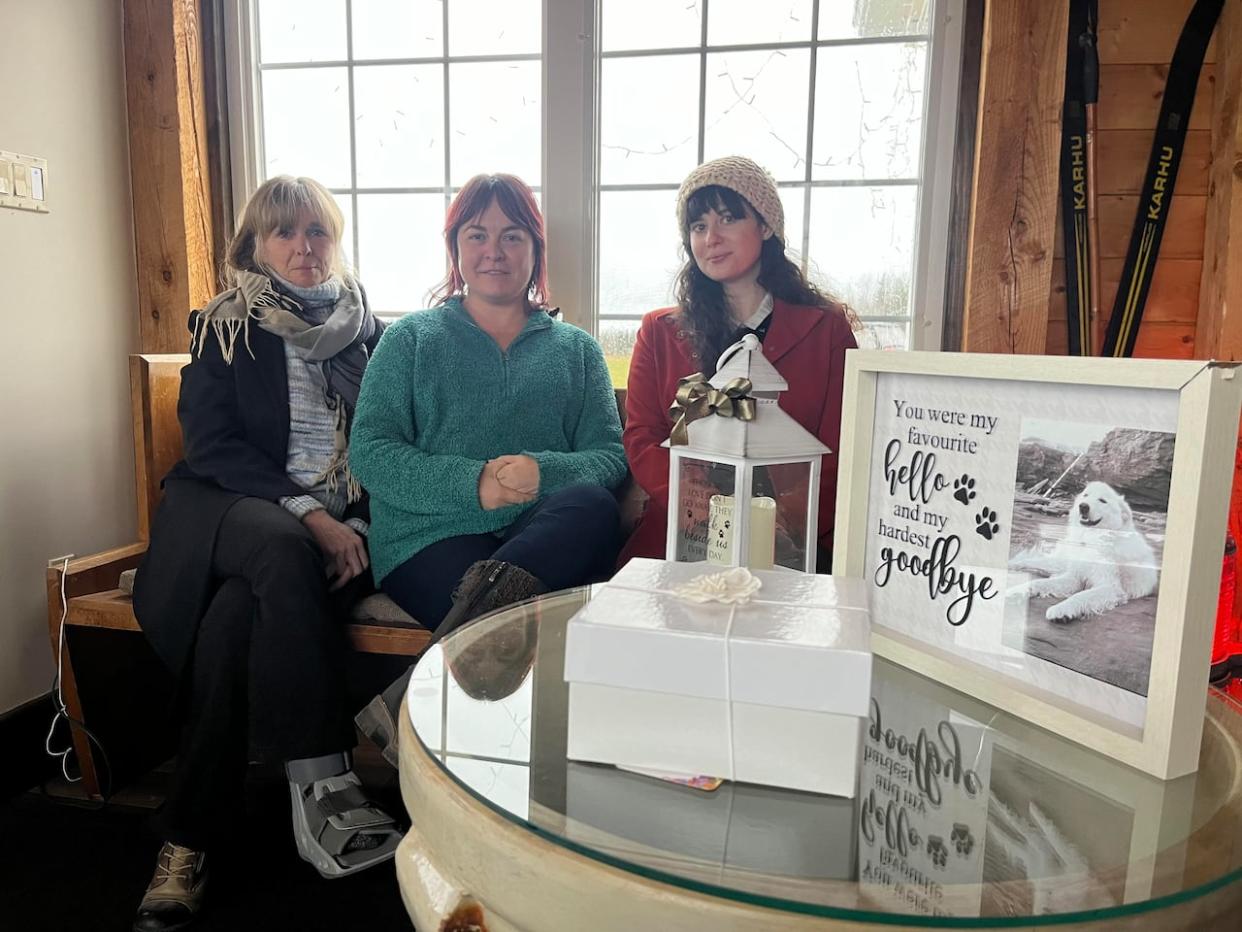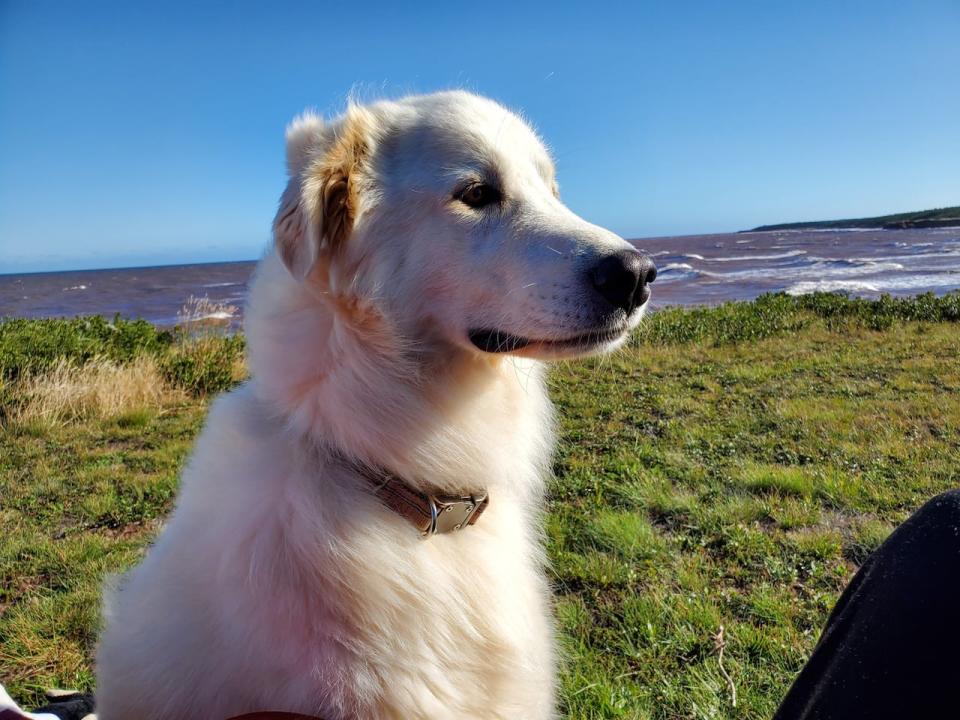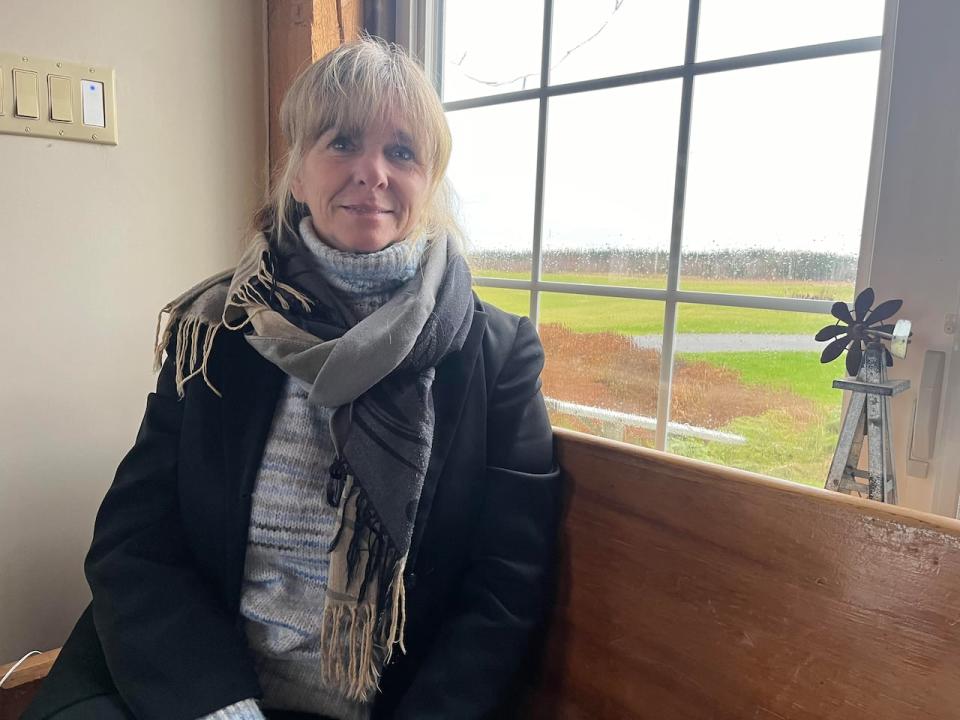'It's time for reform': Hundreds sign petition to ban snaring, trapping on P.E.I.

A group on P.E.I. wants the provincial government to ban snaring and trapping in the province, citing the number of people and pets who have been caught in the devices in recent years.
Debbie Travers, whose dog Caspie died in an illegal snare placed on her family's property, is among those calling for action.
"We're still devastated. It still brings tears to our eyes," Travers said in a recent interview.
"There's nowhere in this house where I can't look out a window or go out a door where I don't see where it happened."

Caspie died on Dec. 30, 2022, after being caught in an illegal snare on her owner's property. (Submitted by Debbie Travers)
About a year ago, Caspie ran into the woods less than 300 metres from Travers's home in a rural part of western P.E.I.
When she didn't return, they searched for hours — eventually finding the dog dead in a snare.
The family thinks about it everyday and worries it could happen to someone else's pet, said Travers.

Debbie Travers, whose dog died in an illegal snare less than a year ago, says the pain of that loss is fresh in her mind. (Brittany Spencer/CBC)
They have a new dog and still enjoy the outdoors with walks on the trails throughout their 200-acre property, but the once pleasant activity is now "stressful," said Travers.
"It's not as much of a joy as it once used to be," she said.
Calls for change
Rene Lombard, a friend of Travers, and Jennifer O'Brien are part of the group that's launched a petition to ban snaring and trapping.
"When I found out about this happening, it sort of impacted the feeling of safety I had walking around in nature by myself, with my dogs, and seeing other people doing it," said Lombard.

Rene Lombard, who's advocating for a ban on trapping and snaring on P.E.I., says the majority of people she's spoken to have been in favour of the idea. (Brittany Spencer/CBC)
Before creating the petition, O'Brien said she didn't expect to hear so many cases of snaring or trapping gone wrong.
"We get stories about dogs where they may not have passed away but they come back with a limp or an injury," said O'Brien.
It is heart wrenching and it just makes me all the more adamant. - Jennifer O'Brien
Last year, another dog was killed outside Charlottetown after being caught in an illegal trap.
Trapping is allowed on the Island from mid-October to the end of March and a licence is required. The province said 89 licences were issued in 2022.
Traps and snares can be set on private property within 200 metres of a house as long as the trapper has the property owner's permission.
They also need to be checked regularly.
But advocates say that doesn't always happen — and the risks of harm or injury to a loved pet are too high.

Current trapping and snaring laws don't protect pets or the public, says Jennifer O'Brien, one of the people calling for an end to both practices on P.E.I. (Brittany Spencer/CBC)
"It is heartwrenching and it just makes me all the more adamant that this is an important cause," said O'Brien.
In a statement, the province said it has completed a review of trapping and snaring on P.E.I. and plans to release the results soon.
With more than 500 signatures, Lombard and O'Brien plan to have their petition presented to MLAs in the legislature this week.
"It's time for reform," said Lombard. "Trapping and snaring poses a significant public safety risk."
Illegal snares will lead to charges, trapper says
John LeLacheur, a trapper who used to be a member of the P.E.I. Trappers Association, said he's disappointed that people want to see trapping banned because of some people's illegal snares.
The rules for trappers, he said, are pretty clear. Proper, legal snaring education is "driven" into the trappers in their training, but there are some that make mistakes.
If people are illegally trapping and snaring they're going to be charged. — John LeLacheur
"There's a whole book of rules that they give you when you get a trapping licence," he said.
"The argument that people are illegally trapping and snaring so we should ban trapping doesn't make a lot of sense to me. If people are illegally trapping and snaring they're going to be charged."
He said trappers get calls from landowners about coyotes, beavers, raccoons, skunks and other animals that are encroaching on a person's property or farm animals.
There isn't a lot of money in the trapping industry these days, he said, as the Island loses more land each year to development. That will likely mean fewer snares, legal or otherwise, in the coming seasons.
"It's all a bit of a moot point. The prices are so low I don't think a lot of people are trapping right now" he said.
"I bought a licence, because I've been trapping for years, but I don't naturally intend to set a trap. Whereas other years I've had up to 100 snares out … There's just not near as much of it going around as there used to be."


